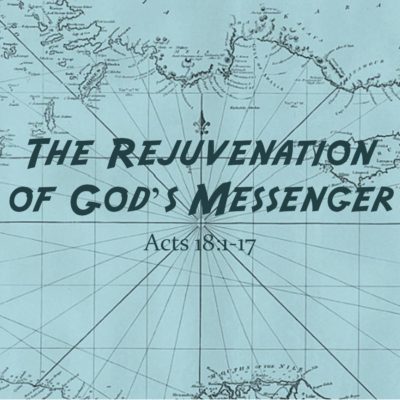Sermons on Romans (Page 3)
I’ll never forget something that my father told me one time as I was preparing for a game. I assume it was a football game that I was about to play, but I don’t recall the situation or exact circumstances surrounding the conversation—I only remember what he said. He said to me, “Don’t forget whose name is on the back of your jersey.” When I walked out onto that field, I wasn’t just representing myself—I was representing five generations of Allen men in Northwest Arkansas!
In our sermon today, I want us to think about this from an eternal/heavenly perspective. God the Father wants us to remember who we are as we live each day—we cannot forget that we are children of God—so we must live like God’s children!
There is a way of thinking that has become more and more popular during my lifetime. It’s hard to sum up this point of view with just one word, or even a few words, without being offensive to someone. Truth is no longer considered absolute, but relative, which gives individuals the perceived right to choose what they believe and what they do not. People all over the world will say that there are many more paths to God than Christianity. But I ask you today, is there any other way?
Last week, we talked about what it means to love one another with authentic love. We studied from Romans 12 and talked about the kind of love we must have: Our love must be genuine. Our love must be evident. Outdo one another in honor. Be persistent in our prayer. Be compassionate to those in…
In Acts 20, Paul continues his travels on his third missionary journey. Very little information is given about these stops in his journey—save for one interesting story about a young man from Troas who fell asleep while the church members were having an all-night discussion with Paul about Scripture. In this study, we focus not…
As we come to the end of Paul’s Second Missionary Journey, we realize that Paul arrived in Corinth physically and emotionally spent—burned out—and he was in desperate need of rejuvenation. That is exactly what he received when he arrived in Corinth. In this study, we will spend some time examining all the ways that Paul received encouragement and instruction during this difficult time and try to apply some of these same principles to our lives as well.
There is an absolute right and wrong that transcends our cultural values and our human experiences. Skeptics push against this idea. This is where the popular saying–“it may be true for you but it’s not true for me”–came from. People are saying that Christians have no right to impose their belief systems about right and wrong on others and that we must maintain a relativistic understanding of morality. Paul addresses this issue and God’s moral law that is written on our hearts in Romans 2.
Society looks at religious beliefs about the origin of the universe as ridiculous and nonsensical. We are often dismissed as ignorant and irrational; and society says that we must keep our secular and sacred lives completely separated! Today, we are going to look at the scientific basis for the claim that there is no God. We will consider several fields of study including: 1) Anthropology, 2) Cosmology, 3) Biology and 4) Astronomy.









